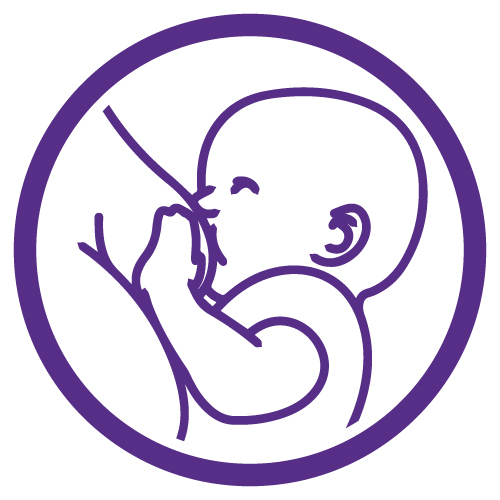 Supporting Sucking Skills Online Course(s) & Continuing Education
Supporting Sucking Skills Online Course(s) & Continuing Education
Access the latest clinical skills and research for Supporting Sucking Skills for Lactation & Breastfeeding professional training. These Supporting Sucking Skills online courses provide practice-changing skills and valuable perspectives from leading global experts. This Supporting Sucking Skills education has been accredited for a variety of CEUs / CERPs and can be accessed on-demand, at your own pace.
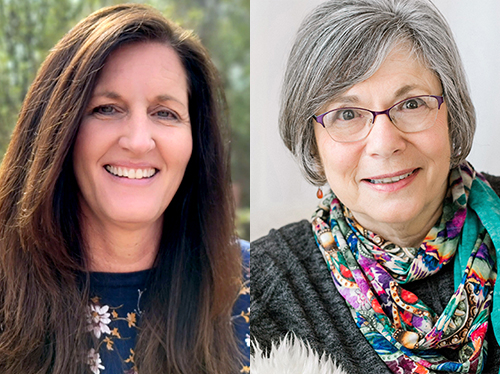

Andrea Herron, is one of the first and longest continuous certified pediatric nurse
practitioners in the United States. After more than 40 years working with breastfeeding
mothers and their babies and teaching parenting classes, she is among one of the
most experienced consultant in the field of lactation. Regardless of the issue or concern,
Andrea has guided thousands of mothers to meet their breastfeeding and early parenting
goals through support groups, lactation consultations, and childrearing education. After
receiving a Master's in pediatric nursing from UCLA, Andrea became an early pioneer in
the back-to-breastfeeding movement, and educated health professionals as an instructor
in the UCLA lactation educator course, all over the United States. Her private lactation practice,
Growing with Baby in San Luis Obispo, California, was used as the national model for
private practices by Women Infant and Children (WIC), the federally funded health and
nutrition program. One of her favorite and most popular topics she teaches through her
Growing with Baby parenting groups is, Understanding Your Infant’s Temperament.
This topic and many of the other topics she teaches are included in her newly released
book, Suckle, Sleep, Thrive: Breastfeeding Success Through Understanding Your Baby’s
Cues. Co-written with Lisa Rizzo.
Andrea has been married to Larry Herron, an orthopedic spine surgeon,
for over 35 years. They are the proud parents of a grown son,
two Labradors, and a cat. The couple reside in Shell Beach,
California.
Lori has worked with high-risk infants/children and their families for 30 years. She graduated from Colorado State University with a degree in Occupational Therapy. In 1996, she became certified in Pediatric Neuro-developmental Treatment. In 2004, she acquired an Advance Practice Certification in Feeding, Eating, and Swallowing.
After graduation, she worked at Simi Valley Hospital, Child Development Center. In this setting, Lori provided occupational therapy services to children age birth to 16 years old with a variety of diagnoses and needs. For the past 17 years she has been providing occupational therapy services to high-risk babies/children in their home and community as a consultant for Tri-counties Regional Center and through her private practice. Her focus has been on feeding difficulties and treating infant developmental delays. In addition, she sees patients privately and jointly with Andrea Herron RN, MN, CPNP, IBCLC, in the Growing With Baby Center. Recently, Lori has joined the NICU team at Sierra Vista Regional Medical Center as a feeding specialist.
Lori lives with her teenage son and husband in beautiful Morro Bay California.
Oral motor coordination and sensory development are two of the most meaningful and critical developmental milestones of the infant. Sucking dysfunction is complicated and may be one of the first signs of abnormal neuro-motor development or other health comorbidities. Too frequently, without a complete assessment, if there are any challenges while feeding at the breast/chest, simple fixes are recommended or bottle feeding is implemented. left untreated these challenges disrupt breastfeeding, leading to weaning. Events during fetal development and birth may be contributing factors to faulty or dysfunctional Infant feeding. It is important to be able to identify one or more of those factors and develop a feeding plan. This may include seeking the insight and intervention of another allied health professional trained in infant feeding.
Andrea Herron RN, MN, CPNP, IBCLC, and Lori Cromer OTR/L, SCFES, have developed a team approach to feeding problems and have worked together for over 15 years. Together they have assessed and treated patients often identifying infants needing ongoing oral motor and developmental interventions. Through power point lecture and case studies they will describe their team approach, emphasizing historical and physical findings that indicate the need for specialized assessment and treatment. Several cases studied will be presented including interviews with the mothers.
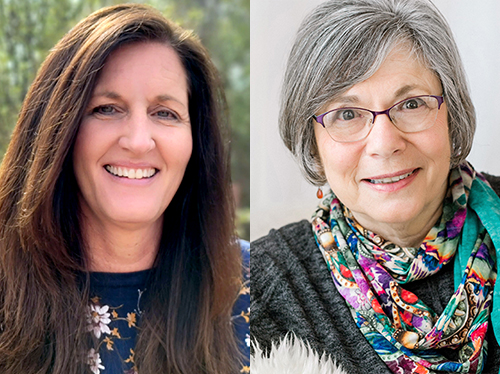
View Details / Enroll
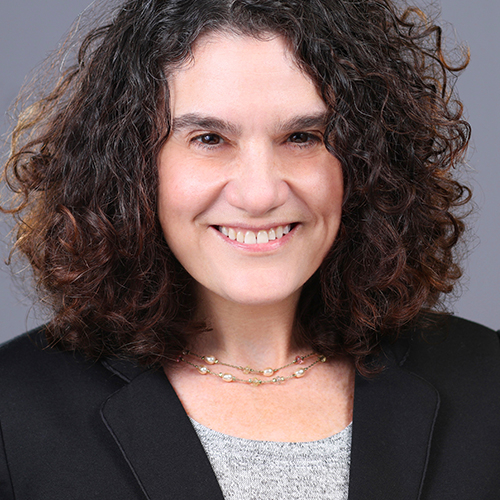
Babies With Suckling Dysfunction: Assessment and Coordination of Care

Leslie has been providing lactation support in Central New Jersey for over 18 years - as a La Leche League (LLL) leader since 2002, an IBCLC at Mercer County WIC from 2014 to 2016, and as a private practice IBCLC since 2011.
Leslie grew up in New York and New Jersey. She graduated from Cook College/Rutgers with a BS in Biochemistry, and from Rutgers University/UMDNJ with a PhD in Biochemistry and Molecular Biology. Leslie's difficulties with early breastfeeding, the help she received from LLL, and challenges with returning to work laid the foundation for her understanding of the importance of skilled and compassionate lactation and infant feeding support.
Topic: Untangling the Big Picture of Tongue-Tie Assessment - [View Abstract]
IBCLCs assess chest/breast and bottle feeding skills and infant’s oral and body anatomy, and the motions that contribute to, or inhibit, the process of feeding as well as post-feeding comfort (digestion and elimination for infant, breast comfort for parent). When infants present with feeding dysfunction, the root of the issue could be from a variety of sources - effects of in utero positioning, prematurity, effects of birth interventions, tight frenulum (ties), asymmetric/tense muscles/fascia, neurological/ reflexive issues, low/high muscular tone, or suckling discoordination, suck-swallow-breathe discoordination, laryngomalacia, compensations for low supply, cleft lip/palate, and more. IBCLCs help families navigate the differential assessment of feeding dysfunction, and at the same time support the family’s feeding and milk supply choices.
This presentation will examine the role of the IBCLC when suckling dysfunction is occurring - for example aiding with latch and bottle feeding, oral/body exercises, referrals for oral evaluations and/or bodywork, or help with frenotomy pre/post work if needed. IBCLCs adjust the care plan as the infant’s feeding skills and parents’ goals grow and change. Developing the skills to aid oral function, and coordinate with specialized practitioners to aid this process, is crucial in order to determine the best course of clinical care, meet the families needs, and allow for the best possible outcome.
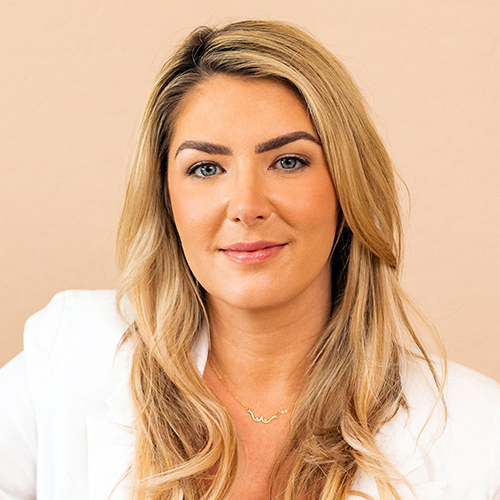

Jacqueline Kincer is the founder of Holistic Lactation where she runs a busy practice, manufacturers herbal supplements for lactation, and supports breastfeeding families worldwide. She's also the host of the podcast Breastfeeding Talk: Milk. Mindset. Motherhood. and creator of the online breastfeeding community, The Nurture Collective. Jacqueline's passion has been to create functional breastfeeding outcomes and expand access to lactation knowledge across the globe.
Topic: Diving into the Nuances of Clinical Sucking Skills: Bridging Infant Oral Function and Breast Physiology - [View Abstract]
Topic: Inside the Infant Mouth: Oral Assessment & Function - [View Abstract]
Topic: Tongue Tied Untied: Creating Functional Breastfeeding Outcomes - [View Abstract]
Developing a step-by-step care plan is arguably the most important part of patient care. Without it, necessary treatments may be neglected. As lactation providers, it is our role to set proper expectations for our clients, as well as measure clinical improvement and patient outcomes. When working with infants that struggle with sucking or other oral function issues, there is a process and a timeline we can put together that will guide the care we are giving. In this presentation you will learn how to provide guidance to your clients as you help them work through their infant’s oral function challenges.

View Details / Enroll


Jacqueline Kincer is the founder of Holistic Lactation where she runs a busy practice, manufacturers herbal supplements for lactation, and supports breastfeeding families worldwide. She's also the host of the podcast Breastfeeding Talk: Milk. Mindset. Motherhood. and creator of the online breastfeeding community, The Nurture Collective. Jacqueline's passion has been to create functional breastfeeding outcomes and expand access to lactation knowledge across the globe.
Topic: Diving into the Nuances of Clinical Sucking Skills: Bridging Infant Oral Function and Breast Physiology - [View Abstract]
Topic: Inside the Infant Mouth: Oral Assessment & Function - [View Abstract]
Topic: Tongue Tied Untied: Creating Functional Breastfeeding Outcomes - [View Abstract]
In order to identify sucking dysfunction, it's important to first know what normal looks like. Being able to do a thorough oral assessment of an infant is a crucial skill for IBCLCs. The focus of this presentation is to discuss what to look for when performing an oral exam, as well as how to assess oral motor function as it relates to infant sucking skills. Knowing how the anatomy affects an infant's oral-motor skills is crucial to determining the cause of breast/chestfeeding problems and suggesting proper treatment.

Sensory Processing and Breast/Bodyfeeding: Using Co-Regulation to Support the Feeding Relationship

Gretchen Becker Crabb is an Occupational Therapist, Licensed Professional Counselor, and Endorsed Infant Mental Health Therapist. She is also a Certified Lactation Counselor, La Leche League Leader, and Brazleton Newborn Observation (NBO) trainer.
Gretchen’s passion is rooted in fostering lifelong relationships and connection through co-regulation in pregnancy and beyond. Her unique approach to lactation support and therapy is rooted in culturally attuned sensory, somatic, and trauma-informed mental health techniques.
Gretchen owns and operates a private practice in Madison, Wisconsin. For 21 years, she has provided developmental, trauma, feeding, and attachment support for tiny humans and their caregivers in birth to three, preschool, private practice, and peer group settings. Gretchen is an international speaker, reflective supervisor, and infant mental health consultant. In these roles, she offers compassionate, experiential, and reflective holding spaces for professionals. She is a proud United States Air Force spouse and mother of three boys.
Topic: Infant Mental Health: What Does It Look Like in Practice? - [View Abstract]
Topic: Scent-Sational Connections: The Role of Olfaction in Development - [View Abstract]
Topic: Sensory Processing and Breast/Bodyfeeding: Using Co-Regulation to Support the Feeding Relationship - [View Abstract]
Topic: Vestibular Processing: Using the Sixth Sense to Support Lactation and Parent/Infant Relationships - [View Abstract]
Well-organized sensory systems provide the foundation for relational feeding. Sensory interactions communicate the story of the dyad, a window into strengths and challenges. Encouraging families to attune to their own sensory preferences and that of their infant can significantly influence the dynamics of the body/breastfeeding relationship. This presentation will explore the basics of sensory processing as it relates to provider, parent, and infant co-regulation in the context of body/breastfeeding and lactation support. We will explore basic neurology and cultural influences of the 8 senses though dyadic examples. Ways in which subtle signs of sensory disorganization and sensory processing disorder present in body/breastfeeding relationships will also be reviewed. Participants will learn practical strength-based sensory strategies to support families in the beginning stages of life, feeding, and beyond.

Sucking Disorders in Children with Neurological, Muscular, Genetic or Anatomical Diseases

Lina Mazzoni is a Lactation Consultant, IBCLC with a Bachelors Degree in Speech and Language Therapy. Since 2013 she has been working primarily with children and specialized in the treatment of sucking, swallowing and feeding disorders. In 2019 she became a Lactation Consultant to be able to work equivalent with the children and the mother. As a working mom she worked part time as a Lactation Consultant in a hospital in Hamburg, started her own privat practice in 2019 and since october 2021 she works exclusively in her private practice as a lactation consultant and SLT. She also works as an Instructor in lactation education and further education regarding feeding developement and disorders . Lina has two children and lives with them and her husband in Hamburg, Germany.
Topic: Sucking Disorders in Children with Neurological, Muscular, Genetic or Anatomical Diseases - [View Abstract]
For an infant, breast/chestfeeding and sucking is the normal form of feeding. If an infant is born with an underlying neurological, muscular, genetic or anatomical disease or if neurological changes occur due to complications, this form of feeding may be disturbed. Since the interaction of breathing-sucking-swallowing requires the coordination of over 60 muscles and several cranial nerves, even small changes in physiology can throw the system out of balance. Congenital-Heart-Disease, Down Syndrome or a disorder of the central nervous system due to pre- or postnatal trauma, infection or structural defect differ in their symptoms, but what they all have in common is that sucking and oral intake of food can be impaired. When working with infants or lactating parents, children with sucking disorders due to an underlying disease may also be present. It is important to know which underlying diseases can have an impact on sucking and how the children and families can be supported to enable or improve oral feeding and to be able to assess which interdisciplinary team would be useful to ensure the best possible care.

Supporting Early Oral Feeding Experiences in the NICU: Utilizing the Lens of Orofacial Myology

Ramya Kumar is an ASHA certified Speech Language Pathologist specializing in infant and pediatric feeding disorders while practicing in a Level 3 NICU and outpatient settings in Phoenix, AZ. She is a Board Certified Specialist in Swallowing & Swallowing Disorders, Certified Neonatal Therapist, International Board Certified Lactation Consultant, Neonatal Touch & Massage Certified Therapist & has completed the Trauma Informed Professional Certificate. Ramya is an internationally sought out speaker & clinical mentor on the topic of neuroprotective care in the NICU, Pediatric Feeding Disorders and Tethered Oral Tissues. Ramya is passionate about helping families create mealtime success through a whole-body lens. More recently, Ramya has been serving as a NICU Developmental Coordinator championing changes in unit culture, system-wide policy development and supporting transition of NICU families to community based programs. She has also co-founded Arizona NICU Follow-Up Specialists, a community resource supporting NICU grads and their families as they transition from hospital to home.
Topic: Trauma Informed and Family Centered Care! Keeping the Family Unit at the Center of a Tongue-Tie Treatment Model - [View Abstract]
One of the most complex and challenging tasks required of an infant in the neonatal ICU (NICU) is oral feeding. Oral feeding progression is also one of the most critical pieces of the discharge puzzle. Depending on their medical and nutritional needs, these infants often experience procedures like intubation and/or placement of medically necessary interfaces like nasal prongs, CPAP masks, orogastric and nasogastric feeding tubes. Intra-oral presence of tubes paired with the sensory motor implications of tape used to secure these interfaces and the overall challenges of a developing infant in the ex-utero environment places these infants at risk for oral feeding difficulties downstream. This presentation will provide participants with ways to support the developing oral structures and subsequent oral motor and oral sensory components of a neonate in an attempt to support breast and bottle feeding progression in the NICU.

Where Should We Dig? Not All Gold Is Buried Under the Tongue

Carol has been a therapeutic bodyworker in Portland, Oregon for over 26 years. She is a retired home birth midwife. She specializes in infant and maternal Craniosacral Therapy.
Carol is convinced that if women are appropriately supported in growing, birthing and nurturing their babies, their lives will improve. When women's lives improve their children's health improves. Healthy children grow up to be healthier adults who create healthier communities and a saner, more peaceful world. Carol believes that when things are out of balance even the smallest intervention can bring about great healing. Our need for it is so great.
Carol is passionate about using her CST skills to gently make space in maternal bodies so babies can assume ideal positions for gestation and birth. She is currently developing specialized prenatal yoga classes to support and enhance the maternal bodywork techniques she practices and teaches.
Topic: Where Should We Dig? Not All Gold Is Buried Under the Tongue - [View Abstract]
Carol will explain how the sources of tongue and oral dysfunction aren’t always in the mouth. Sometimes the gold is buried elsewhere. She will discuss torques and twists in the body that extend into the floor of the mouth and express themselves as a lack of tongue mobility. She will discuss how fetal lie and restricted fetal mobility cause babies to grow in ways that negatively impact their breastfeeding. These things may masquerade as and/or exacerbate tongue mobility issues disguised as short frenula. Carol will also explain the CST treatment approach for these babies.

View Details / Enroll




